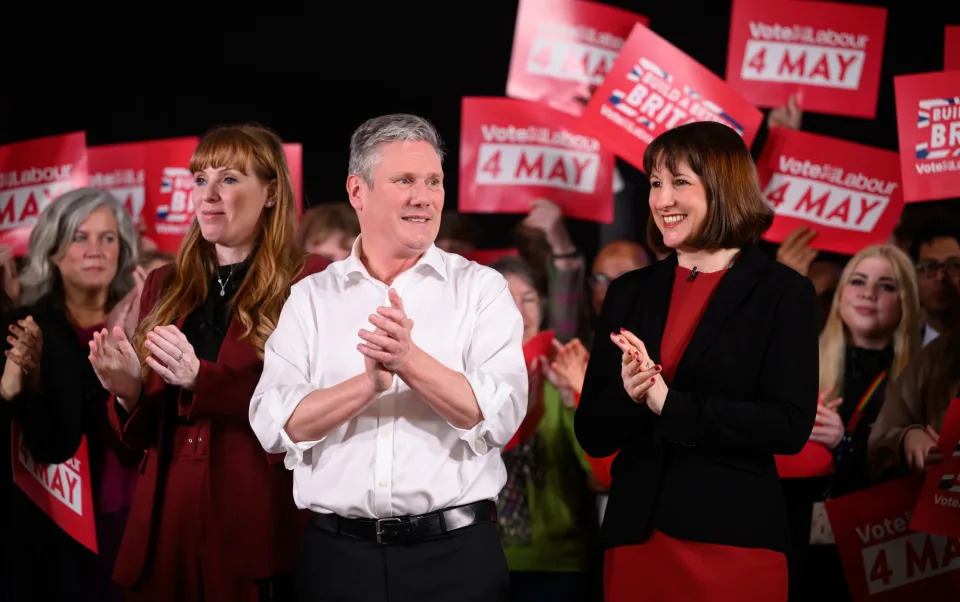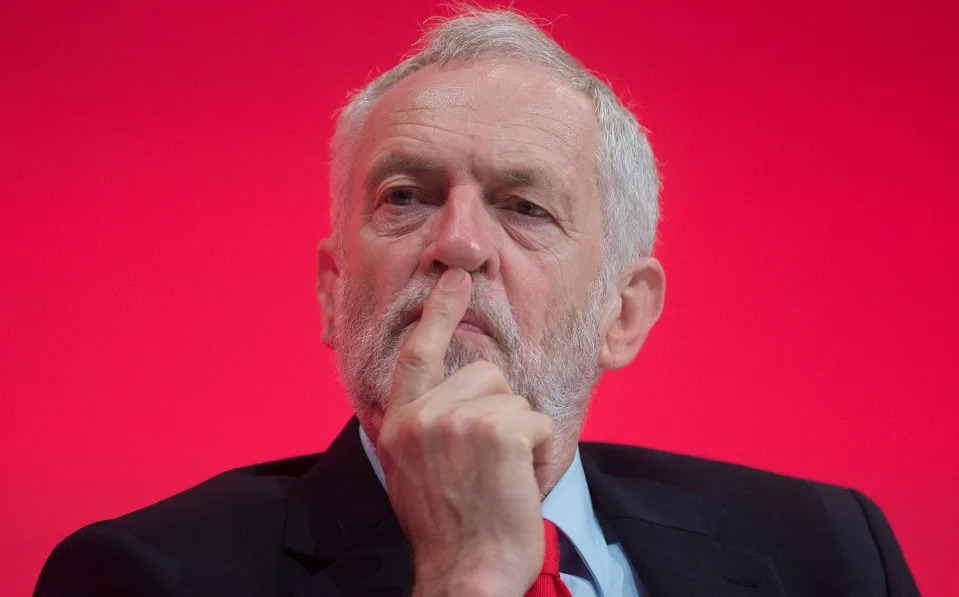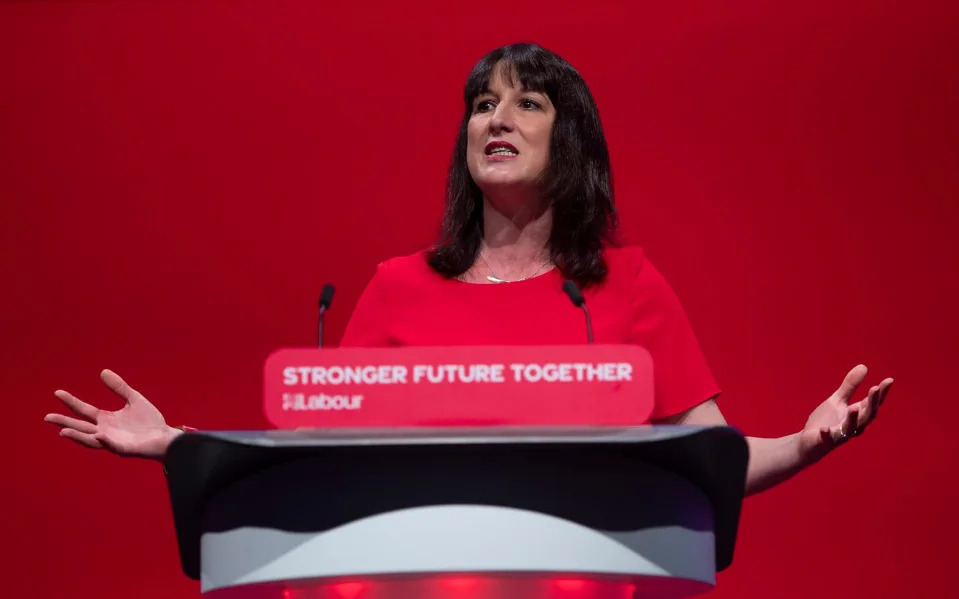Melissa Lawford
Sun, 20 August 2023

Labour’s lead over the Tories has prompted a scramble among companies to hire those in the know - Leon Neal/Getty Images Europe
After 13 years of Tory government, business leaders are facing up to the fact that a new party may be in Downing Street next year – one that many have no experience of working with.
With Labour enjoying a 17-point lead over the Tories, Sir Keir Starmer looks increasingly likely to sweep to power. That prospect is sparking a scramble to figure out how to deal with the government in waiting.
“Public affairs and comms consultancies are getting CEOs asking them what are we doing in preparation for this potential change, do we have the right contacts and connections?” says Lucy Cairncross, managing director at VMA Group, a recruiter that specialises in public affairs.
“We didn’t hear those kinds of conversations happening in 2019. It wasn’t high up on their agenda because they would have thought it’s not going to happen. This time, clearly, there is a shift.”
PR firms and City advisors are rushing to hire current or former Labour insiders who know how the party works and can help get things done.
“We made a conscious decision at the start of the year to hire senior people with a background in centre-Left politics. The value of their stock is currently climbing,” Nick Faith, director of WPI Strategy, says.
“We work with organisations from pretty much every sector of the economy and they are all gearing up for the possibility of a potential change of government.”
City firms are rapidly undergoing a facelift – and they are trying to look like Keir Starmer.
Perhaps the clearest example of the shift is Hanbury Strategy.
The London-based lobbying and communications company has close ties to the Tory party and was set up by a former close ally of Dominic Cummings, Paul Stephenson, who ran PR for the Vote Leave campaign. However, Chris Ward, Sir Keir’s former deputy chief of staff, joined Hanbury last year and launched a new Labour Unit in September.
“Every business and every trade body in the country is making a contingency plan at the moment for a Labour government,” says Alec Zetter, a public affairs headhunter at recruiter Ellwood Atfield.
It is an increasingly expensive procedure: there is a shortage of talent, meaning companies must pay a premium to attract those with real insight.
Labour has been out of power for more than a decade, and many of those who worked under the party’s last leader have been written off.
“There aren’t that many credible people from the Corbyn period because so many of them were avowedly anti-business and of course it’s a long time since Labour were in government, so there aren’t that many Labour advisers who also have government experience,” says Nick King, managing director of Henham Strategy.
One senior public affairs figure says: “Clients are more and more likely to want a Labour offering, and in a classic case of supply and demand, given there is not a lot of supply, Labour people are definitely attracting higher salaries now.”

Many of those who served under the Labour Party’s last leader, Jeremy Corbyn, have been written off - Eddie Mulholland
Former MPs are in particular demand. Luciana Berger, who quit Labour in protest in 2019 before later rejoining briefly, joined iNHouse Communications last year and became a senior adviser this summer.
Anna Turley, who served in Corbyn’s shadow cabinet, has joined Arden Strategies, as has the party’s former head of business relations, Ellie Miller.
Instinctif, the City advisor to several FTSE companies, took on former Labour shadow minister Tom Harris in July 2023 to expand its Navigating Labour Unit.
Former shadow deputy leader of the House of Commons Melanie Onn, who left the Commons in 2019, has joined Blakeney Communications.
“For good people who are able to do the role really well and have really good contacts, there is always going to be a bit of a war for that talent,” says Cairncross.
If it becomes even more clear that Labour could win the next general election, there could be a “tipping point of going hell for leather” in throwing money at Labour-connected people, she adds.
Consultancies that have sold themselves for years on having expertise dealing with the Conservative Party know that their currency will slide fast if Labour win the next election.
A current Labour source says: “I get some kind of call probably once a month. It started last year when the Tories properly began to implode.”
Those who have worked with Starmer, the shadow chancellor Rachel Reeves or the shadow business secretary John Reynolds are most in demand.

Firms are seeking people who have worked with key figures in the shadow cabinet such as Rachel Reeves - Eddie Mulholland
However, many of those working for Labour now won’t consider a move because they know they may get their first opportunity to work within government, says Faith.
The public affairs sector is also losing staff to Labour, as people return to the party ahead of the election. “I know loads of people seconding jobs into Labour from business,” says Ward.
Demand for Labour expertise is strongest in finance, tech and net zero adjacent industries.
“Any industry that is under particular pressure from a net zero agenda, for example, they are absolutely trying to talk to what they perceive will be the next government around what their responsibilities and contributions will be,” says Zetter.
Ward adds: “Then you also get very large employers who are asking: what is Labour going to do on employment rights and taxation for large companies?”
Labour are happy to answer these questions. When Starmer launched his “Prawn Cocktail Offensive 2.0” last autumn, it marked the second phase of a long push to try and woo businesses to the Left.
“The first phase was basically decontamination – basically trying to convince people that the party is no longer Jeremy Corbyn,” says Ward. “The second phase is carpet bombing – meeting every business or anyone who will meet you. That is what they are doing now and have been for the last year or so.”
The third phase will be a calculated, targeted programme of engagement with a much smaller group of businesses that Labour can trust, he says.
As the circle gets smaller and the election draws nearer, the value of insiders will only go up.



